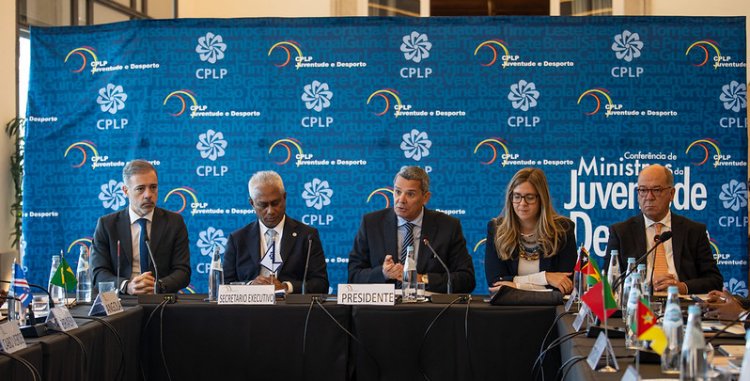In the opening session of the meeting of Ministers of Youth and Sports of the Community of Portuguese Speaking Countries (CPLP), which takes place between this Thursday and Friday in Cascais (Portugal), Rui Falcão Pinto de Andrade, who is also the president of XV Conference of Ministers of Youth and Sports of the CPLP stated that "Angola reaffirms its commitment to promoting initiatives that elevate youth and sport" in that community.
And he expressed the desire that, together, the Member States can "replicate throughout the CPLP" the initiatives that their country is taking to promote the practice of sport in schools and in the community.
"We are implementing [in Angola] policies that encourage sports in schools and communities, recognizing the role of sports trainers in promoting education, health and social integration", said the minister. And "we believe that together we can replicate this initiative throughout the CPLP", he added.
For Rui Pinto de Andrade, the meeting of CPLP Ministers of Youth and Sport is "a moment of great reflection and taking important positions" for the future of young people and sport in the community.
"This meeting, in particular, has proven essential to strengthen our capacity to respond jointly to global challenges, such as social inclusion, young people's mental health and sustainability", he highlighted.
And anchor activities, "such as the CPLP sports games, the CPLP Young Creators Biennial", or the Youth Parliament are milestones that promote "integration and cultural exchange for young people" from the Member States, he added.
"They are more than competitions or exhibitions, they are celebrations of our shared identity" and youth are the "driving force of development". Therefore, he argued, it is necessary to "ensure that (...) you have the necessary tools" to act.
The CPLP executive secretary argued that "youth-led organizations need to be encouraged and trained to participate in the translation of the 2030 Agenda and the Pact for the Future into local, national and regional policies".
Zacarias da Costa recalled that, when "endowed with the skills and opportunities necessary to reach their potential, young people can be a driving force to support development and contribute to peace and security" at a global level.
To achieve this, there must be "political commitment and adequate resources", he suggested.
The executive secretary of the CPLP defended in his speech "an intergenerational commitment, with the clear identification of opportunities and the co-creation of fairer, more equitable and progressive solutions in society, across the three dimensions of sustainable development".
One of the main ways to achieve this "is through the promotion of literacy and the acquisition of skills by young people, namely through the promotion of critical thinking, increasingly necessary to navigate the complex scenario of so-called artificial intelligence", he considered.
Recalling that the theme of the organization's current rotating presidency is "Youth and Sustainability in the CPLP", the executive secretary of the CPLP highlighted that all analyzes identify young people, women and the elderly, "among the most disadvantaged groups in societies".
"Which is dramatic, when we know that, in the CPLP space and, according to the World Bank's statistical base, the population between 0 and 24 years old rose to more than 92 million people in 2022 (15 million in the age group between 15 and 24 years old and 77.5 million in the age group between 0 and 14 years old)", he considered.
This means that "this young population is more than 40 percent of the total population which, according to the same source, would exceed, in 2022, 300 million people", added Zacarias da Costa.
This "demographic dividend", full of aspirations, cannot be defrauded "for the sake of current and future generations", he highlighted.
For Zacarias da Costa, in the current global scenario, "CPLP must think of sport as a diplomatic tool for promoting sustainable development".
"Young people and sport can and should act as multipliers to generate positive changes in their local, national and international environment," he added.
The CPLP includes Angola, Brazil, Cape Verde, Guinea-Bissau, Equatorial Guinea, Mozambique, Portugal, São Tomé and Príncipe and Timor-Leste.







